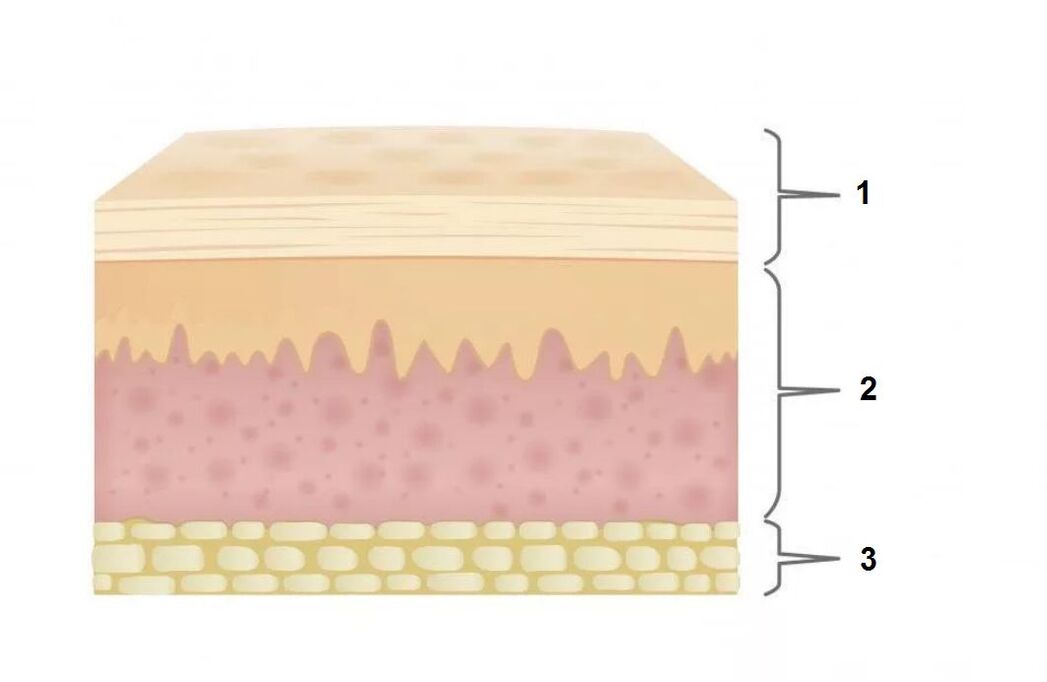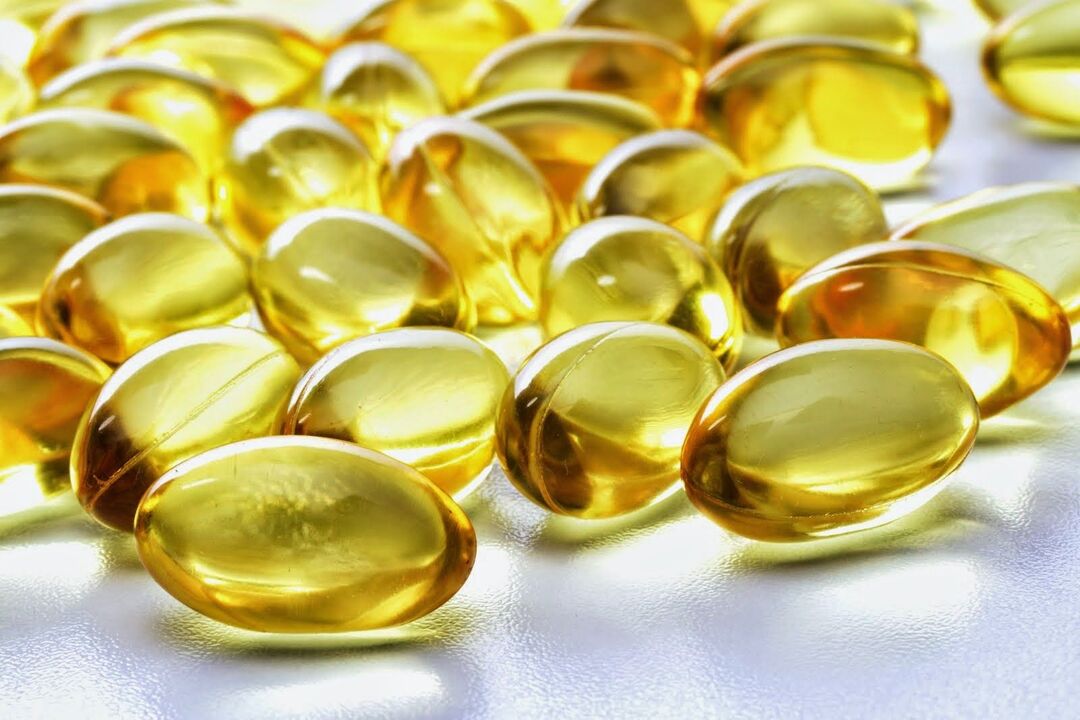How important are vitamins for facial skin? They play an important role in collagen synthesis, maintaining skin elasticity and hydration, and protecting the skin from adverse environmental factors such as free radicals and solar radiation.
Sun exposure is one of the main factors that cause skin aging. It has been shown that solar ultraviolet radiation destroys collagen, while inhibiting the activity of fibroblasts that produce collagen, elastin and hyaluronic acid in the dermis of the skin. For these procedures, a special term has even been coined - skin imaging.

After the age of 40, the amount of collagen fibers in the skin decreases by about 2 times, which directly affects the firmness and elasticity of the skin. In addition, at this age, the amount of hyaluronic acid present in the skin decreases by 40%, resulting in a decrease in skin thickness and hydration, and at the same time reduces the hydration level of collagen fibers with water, further reducing firmness. of skin and elasticity.
Vitamins can reduce the negative impact of the external environment on the skin, and at the same time activate the metabolism in the skin. Many studies have shown that the most essential vitamins for the beauty of skin and hair are vitamins A, C, E, K, as well as a group of B vitamins.
The main effects of vitamins used in cosmetology:
- Vitamins A and C - have the ability to increase the production of collagen and elastin in the skin, thereby increasing the elasticity of the skin.
- The combination of vitamins C and E - perfectly protects the skin from the harmful effects of ultraviolet radiation, prevents the process of skin damage.
- The combination of vitamins A and K - effectively combats dark circles under the eyes.
- Vitamin C together with vitamin B5 - heals skin damage perfectly.
Below we will look at the 5 most important vitamins for facial skin, tell you what functions they perform, and give examples of high-quality cosmetics based on them.
Vitamin E for facial skin
Research shows that vitamin E is a very powerful antioxidant that helps reduce skin-damaging free radicals. As you know, the latter plays an important role in the aging process. Vitamin E for facial skin actively fights free radicals and, therefore, prevents premature aging.
Studies have shown that vitamin E is also effective at absorbing harmful UV radiation from the sun. In addition, cosmetic products containing a combination of vitamin E and vitamin C have been shown to be more effective in sun protection than products with either of these vitamins.
Scientists have also found that vitamin E can accumulate in the epidermis (surface layer of the skin). This leads to an increase in the hydrophobic properties of the epidermis, i. e. the evaporation of moisture from the skin's surface will decrease and, as a result, the moisture content of the skin will increase. That's why vitamin E for the face - esthetician reviews confirm this - is a desirable ingredient in any moisturizer.
So vitamin E for skin allows you to:
- UV protection
- has powerful antioxidant properties,
- anti-inflammatory effect,
- helps fight wrinkles and fine lines,
- moisturizes and softens dry skin,
- reduce the risk of cell mutations and skin cancer.
Forms of Vitamin E
There are several forms of vitamin E, but the safest and biologically active form is alpha-tocopherol (synonyms - "alpha-tocopherol acetate", "alpha-tocopheryl acetate"). This form is recommended by the FDA. This form is natural.
There are also synthetic forms of vitamin E, which are synthesized from petroleum products. Such forms are less active and safer. They will be indicated in the instructions of cosmetic products with the prefix "DL", for example, "dl-tocopherol" or "dl-tocopheryl acetate".

On the Internet, you can find a lot of different ways to use vitamin E for facial skin at home, because. It can be purchased cheaply in any pharmacy and its benefits for the skin are enormous. That's why vitamin E for the face - reviews by estheticians and patients confirm it - must be in the cosmetic bag of any woman who cares for her appearance. Here we will tell you how to use vitamin E capsules for the face and for the skin around the eyes.
How to use Vitamin E for dry and sensitive skin
Those with dry and sensitive skin know how important and difficult it is to find the right ingredients to keep their skin healthy. Vitamin E is one of the few that can be used effectively without buying expensive serums and creams. At the pharmacy, you can freely buy a bottle or capsule that contains an oily vitamin E solution inside.
Vitamin E for facial skin: how to use:
- Warm your hands and then squeeze out 1-2 vitamin E capsules.
- Apply with gentle massaging movements to the skin.
- It is best to do it in the evening (before going to bed).
How to use vitamin E for the skin around the eyes?
Vitamin E capsules can completely replace an expensive eye cream. However, keep in mind that pure vitamin E is a potential allergen, so it can cause serious allergic reactions if it comes into contact with the mucous membranes of the eyelids.
Gently squeeze 1 capsule into the palm of your hand and apply it around the eyes with your ring finger pad. Use patting, as if controlling the movement, because. This is the least damaging to the delicate skin of the eyelids. It is best to apply vitamin E to the skin around the eyes in the evening, do not wash it off in the morning.
Vitamin E Mask
There are many vitamin E face mask recipes that you can make at home. Here are the most popular ones.
- Vitamin E honey mask for dry skin - take a teaspoon of honey, add 2 vitamin E capsules to it, mix well. Then apply this mixture on the face and facial area. Leave the mask on for 20 minutes and then wash it off with warm water. This mask can be done 2-3 times a week.
- Anti-Wrinkle Vitamin E Mask - First mash half a fresh ripe avocado, then add 2 vitamin E capsules and mix well. Then, apply this mixture on your face and neck, leave this mask on for 15-20 minutes. At the end of this time, rinse with warm water.

Vitamin E for chapped lips
In winter, the lips are often weathered and cracked, causing a very uncomfortable burning sensation. With the help of vitamin E, you can not only quickly heal chapped lips, but also moisturize your lips well, thereby preventing further damage to the skin of your lips.
How to register:
- Apply the contents of 1 vitamin E capsule to the lips,
- best do it at night,
- avoid licking lips, because. this will prevent the vitamin from being absorbed into the skin.
Vitamin A
Vitamin A is most commonly found in anti-aging cosmetics, because. it, with long-term use (about 24-36 weeks), has the following effect on the skin
- gives the skin an even tone and texture,
- stimulate collagen production,
- reduce the depth of fine lines and wrinkles,
- reduce age spots,
- and also fight acne (blackheads and pimples).
There are several forms of vitamin A with varying potency. These include: retinol, retinol ester (eg, retinol acetate), retinaldehyde, trans-retinoic acid, 13cis-retinoic acid, etc. v.
Products based on pure retinol, and even more retinol acetate, will be much weaker than products containing retinaldehyde or retinoic acid. However, retinol is most commonly used in anti-aging cosmetics. it is much less irritating to the skin. Unfortunately, it is difficult to choose a quality cosmetic product with retinol. Many manufacturers use inexpensive vitamin A agents (retinol esters) rather than pure retinol or retinaldehyde.
Products based on retinoic acid will most strongly stimulate collagen synthesis and reduce the depth of wrinkles, however, as we have said, they cause severe skin irritation (dryness, redness, itching), especiallyespecially when starting to use.
The use of vitamin C
Everyone knows that this vitamin is a powerful antioxidant, but its properties don't stop there. For example, many clinical studies have confirmed the effects of vitamin C on collagen and elastin fiber synthesis. It can be said that after vitamin A, vitamin C is the most important vitamin to maintain good skin condition.
Effects of vitamin C on the skin:
- protect the skin from ultraviolet radiation,
- protect the skin from free radicals,
- involved in the synthesis of collagen fibers,
- reduce the depth of wrinkles,
- reduce pigmentation on the skin,
- stimulates the regeneration of skin cells.
The term "vitamin C" (as well as vitamin A) does not refer to a specific molecule, but to an entire class of substances, including: L-ascorbic acid, sodium ascorbyl phosphate, magnesium ascorbyl phosphate, ascorbyl palmitate, sodium ascorbateand other substances.
The most effective form of vitamin C is L-ascorbic acid. The remaining substances are only its precursors, i. e. they turn into it after application and absorption into the skin. Here are examples of quality vitamin C products.
Research on the effects of vitamin C on collagen synthesis has led to an explosion in the number of cosmetic products containing this vitamin. Many patients leave praise for such a cosmetic, while others do not see its effectiveness. What is it connected to?
It turns out that not only the form of vitamin C in the product's composition is important, but also its concentration, and even the pH of the cosmetic. No less important is the manufacturing technology (vitamin C stabilized), so that it does not degrade from air and light even before applying a cream or serum to the skin.
Vitamin B for beautiful skin and hair
Studies published in 2003 showed that the use of B vitamins in facial creams and serums significantly reduced the effects of aging and fading of facial skin.
The most important B vitamins for the skin.
- Vitamin B2 (riboflavin) is a very important vitamin for the maintenance of skin, nails and hair. Its deficiency leads to dry skin, cracks in the corners of the mouth, premature skin aging, as well as dry, brittle hair and nails.
- Vitamin B3 (nicotinic acid) - improves the ability of the upper layer of the epidermis to retain moisture. It helps dry skin look softer, smoother and reduces facial wrinkles. Also used with other skin whitening products for melasma.
- Using B3 along with vitamin A (retinoids) provides even better results in combating wrinkles. But lack of B3 leads to dry skin, undernutrition of the hair follicles, and as a result, increased fragility and cross-section of the hair.
- Vitamin B5 (pantothenic acid) - Helps fight acne by reducing sebum production. In addition, vitamin B5 contributes to faster regeneration of skin cells, but this effect is especially pronounced when combined with vitamins B5 and C.
- Biotin (vitamin B7) - participates in the synthesis of collagen fibers, forms the basis of skin, nails, hair. Its deficiency can lead to dry and itchy skin, dermatitis, hair loss, and increased sebum production on the scalp.
- Vitamin B12 (cyanocobalamin) - helps regulate skin pigment production and prevents hyperpigmentation.
Below, we have provided examples of quality and reliable vitamin B creams and serums.
Vitamin K for skin
It is believed that the cause of the appearance of dark circles under the eyes is that the delicate capillaries burst and emerge through the thin skin. Studies and patient reviews have shown that vitamin K applied to the skin can reduce dark circles under the eyes, as well as reduce the appearance of dark spots and bruising. But the combination of vitamins K and A in a face cream is even more effective at combating dark circles under the eyes than vitamin K alone.
In one study, it was confirmed that after 4 months of continuous use of a cream with vitamin K and retinol (vitamin A), the dark circles under the eyes of the subjects were significantly lightened. Researchers can't answer for certain which of the two vitamins contributed to this: retinol thickens puffiness under the eyes, making it less transparent, while vitamin K has a brightening effect. , making dark circles less noticeable. Furthermore, retinol increases vitamin K's ability to penetrate the skin and interact with cells.
We hope that our article: Vitamin review for facial skin - turns out to be useful to you!






































